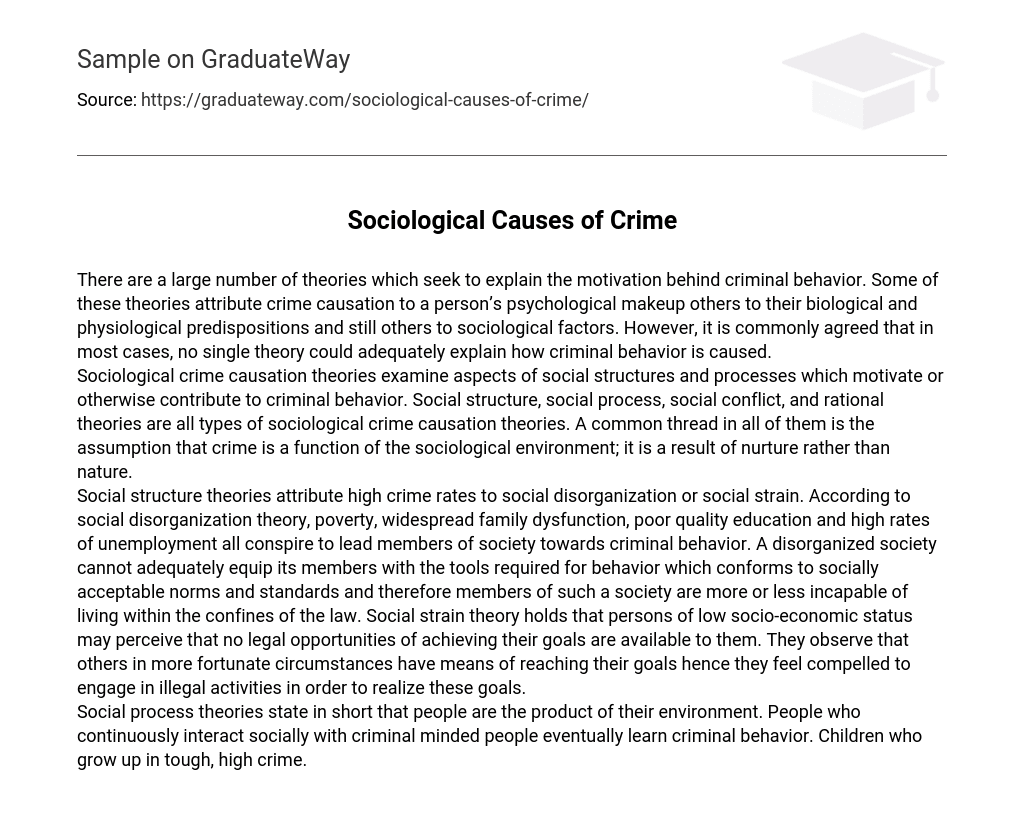There are a large number of theories which seek to explain the motivation behind criminal behavior. Some of these theories attribute crime causation to a person’s psychological makeup others to their biological and physiological predispositions and still others to sociological factors. However, it is commonly agreed that in most cases, no single theory could adequately explain how criminal behavior is caused.
Sociological crime causation theories examine aspects of social structures and processes which motivate or otherwise contribute to criminal behavior. Social structure, social process, social conflict, and rational theories are all types of sociological crime causation theories. A common thread in all of them is the assumption that crime is a function of the sociological environment; it is a result of nurture rather than nature.
Social structure theories attribute high crime rates to social disorganization or social strain. According to social disorganization theory, poverty, widespread family dysfunction, poor quality education and high rates of unemployment all conspire to lead members of society towards criminal behavior. A disorganized society cannot adequately equip its members with the tools required for behavior which conforms to socially acceptable norms and standards and therefore members of such a society are more or less incapable of living within the confines of the law.
Social strain theory holds that persons of low socio-economic status may perceive that no legal opportunities of achieving their goals are available to them. They observe that others in more fortunate circumstances have means of reaching their goals hence they feel compelled to engage in illegal activities in order to realize these goals.
Social process theories state in short that people are the product of their environment. People who continuously interact socially with criminal minded people eventually learn criminal behavior. Children who grow up in tough, high crime.





